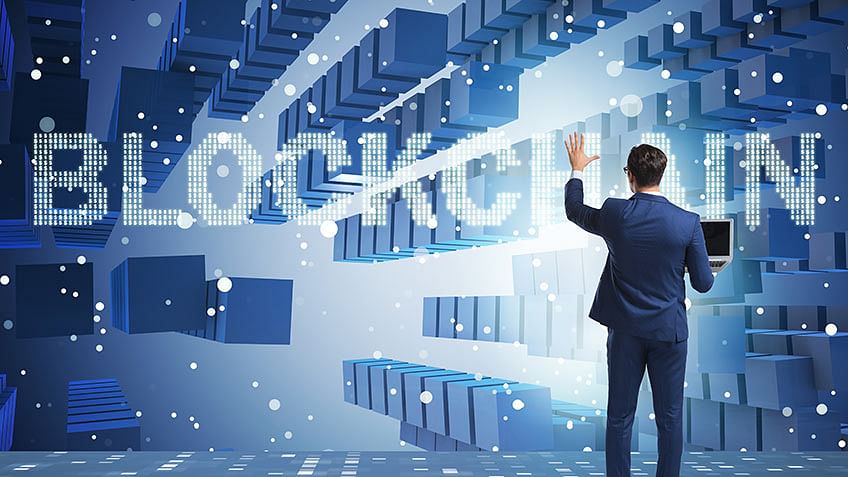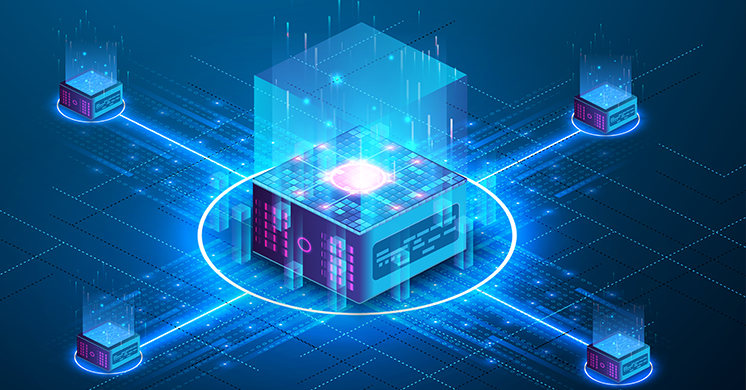"Unleashing the Power of Blockchain: Revolutionizing Industries, Empowering Communities, and Shaping
In the ever-evolving landscape of technology, few innovations have captured the imagination and potential for transformation quite like blockchain. Emerging initially as the backbone of cryptocurrencies like Bitcoin, blockchain has since transcended its origins to revolutionize industries, empower communities, and shape the future of finance, governance, supply chains, and beyond.

 Moreover, blockchain's impact extends far beyond finance, permeating industries ranging from healthcare and supply chain management to voting systems and digital identity verification. In healthcare, blockchain facilitates secure, interoperable, and transparent sharing of patient data among healthcare providers, enhancing patient outcomes, streamlining processes, and reducing medical errors. In supply chain management, blockchain enables end-to-end traceability and provenance verification, mitigating fraud, counterfeit goods, and supply chain disruptions while promoting sustainability and ethical sourcing practices.
Moreover, blockchain's impact extends far beyond finance, permeating industries ranging from healthcare and supply chain management to voting systems and digital identity verification. In healthcare, blockchain facilitates secure, interoperable, and transparent sharing of patient data among healthcare providers, enhancing patient outcomes, streamlining processes, and reducing medical errors. In supply chain management, blockchain enables end-to-end traceability and provenance verification, mitigating fraud, counterfeit goods, and supply chain disruptions while promoting sustainability and ethical sourcing practices. Furthermore, blockchain holds immense potential to revolutionize governance and enhance democratic processes. By leveraging blockchain for voting systems and digital identity verification, governments can increase transparency, reduce electoral fraud, and enhance citizen engagement in the decision-making process. Smart contracts, self-executing contracts with the terms of the agreement directly written into code, offer a novel mechanism for automating and enforcing contractual agreements, reducing reliance on intermediaries and minimizing disputes.
Furthermore, blockchain holds immense potential to revolutionize governance and enhance democratic processes. By leveraging blockchain for voting systems and digital identity verification, governments can increase transparency, reduce electoral fraud, and enhance citizen engagement in the decision-making process. Smart contracts, self-executing contracts with the terms of the agreement directly written into code, offer a novel mechanism for automating and enforcing contractual agreements, reducing reliance on intermediaries and minimizing disputes. However, despite its transformative potential, blockchain technology is not without its challenges and limitations. Scalability, interoperability, regulatory uncertainty, and environmental concerns related to energy consumption are among the key obstacles facing widespread blockchain adoption. Addressing these challenges will require collaborative efforts from industry stakeholders, policymakers, and technologists to develop scalable, sustainable, and interoperable blockchain solutions that balance innovation with regulatory compliance and environmental responsibility.
However, despite its transformative potential, blockchain technology is not without its challenges and limitations. Scalability, interoperability, regulatory uncertainty, and environmental concerns related to energy consumption are among the key obstacles facing widespread blockchain adoption. Addressing these challenges will require collaborative efforts from industry stakeholders, policymakers, and technologists to develop scalable, sustainable, and interoperable blockchain solutions that balance innovation with regulatory compliance and environmental responsibility.
In conclusion, blockchain represents a paradigm shift in how we store, transact, and verify data, with far-reaching implications for industries, economies, and societies worldwide. As we continue to unlock the full potential of blockchain technology, it is imperative that we remain vigilant, ethical, and inclusive in our approach, ensuring that blockchain-driven innovations empower individuals, foster trust, and contribute to a more equitable and sustainable future for all.






![[LIVE] Engage2Earn: auspol follower rush](https://cdn.bulbapp.io/frontend/images/c1a761de-5ce9-4e9b-b5b3-dc009e60bfa8/1)





![[ℕ𝕖𝕧𝕖𝕣] 𝕊𝕖𝕝𝕝 𝕐𝕠𝕦𝕣 𝔹𝕚𝕥𝕔𝕠𝕚𝕟 - And Now What.... Pray To The God Of Hopium?](https://cdn.bulbapp.io/frontend/images/79e7827b-c644-4853-b048-a9601a8a8da7/1)














